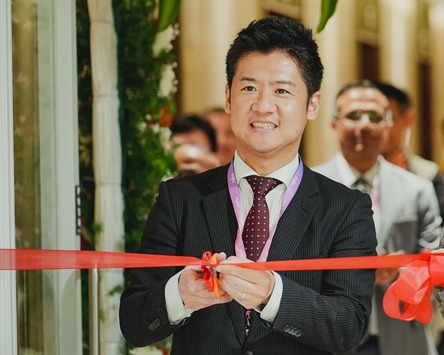Sake Exports from Japan to India Triple Over Five Years
The exponential hike in the consumption of Sake in India reveals a robust cultural connection fueling rising demand.
New Delhi, India —Japan’s iconic rice wine, Sake, is witnessing a remarkable surge in popularity across India. The volume of exports has more than tripled over the past five years, according to Trade Statistics of Japan. Exports have grown from 8,408 liters in 2019 to 27,155 liters in 2024.
This milestone was highlighted during the recent “Sake Soiree,” held at Café Dali in New Delhi with support from Rad Elan. Delivering an address at the event, Jiro Kodera, Counsellor (Economy and Development) at the Embassy of Japan, attributed the rise partly to greater awareness of Sake’s cultural significance and an increased focus on consumer education.
“Japanese Sake is not just an alcoholic beverage but a highly cultural product, rich in our history, nature, and craftsmanship,” Kodera said. He noted that in April 2024, Sake (“Nihonshu”) received Geographical Indication registration in India, and late last year, UNESCO recognized the traditional knowledge and skills of Sake-making with koji mold as an Intangible Cultural Heritage.
With more than 233,000 Indians visiting Japan last year—a 40 percent increase from the previous year—tourism is also fueling interest in Sake. Kodera encouraged travelers to explore the unique flavors found in different regions of Japan, underscoring Sake’s varying “terroir,” much like wine.

However, experts say that one of the central challenges remains consumer education. Industry figures like Sake Mom India’s Master of Sake, Ms. Mika Eoka, have been working with hospitality professionals to boost understanding of Sake’s distinct qualities and serving traditions.
Rad Elan, which operates in eight Indian states, has played a vital role in raising Sake’s profile. At the event, Amit Goel, Managing Director of Rad Elan, was thanked for his organization’s ongoing effort. Hiroaki UTO, Second Secretary at the Japan Embassy, also attended.
Highlighting Japan’s openness to diverse cultures, Kodera drew parallels to dishes like katsu curry and curry bread, which he described as “unimaginable from the perspective of an Indian thali” yet popular in Japan. This receptiveness, he said, extends to Sake promotion in India, where collaboration and mutual respect are key drivers of its growing success.
As Sake gains ground among Indian consumers and the hospitality industry, many observers predict that the triple-digit growth over the last five years may only be the beginning.
A diverse and distinguished group of personalities attended the Sake Soiree event held at Cafe Dali in New Delhi. The gathering featured notable dignitaries, including Jiro Kodera, Counsellor (Economy and Development) at the Embassy of Japan, and Hiroaki Uto, Second Secretary at the Embassy. Also present were international representatives such as Steven Biddle, Julianne Biddle, Mariann Erdo, Branimir Farkas, Federico Salas, and Peter.
The event was also graced by Charm Jones, Heidi Seedrof Grypo, Angela Hoertnagl, and Jenks. From the hospitality sector, Kanahiya from Ebisu and Ankur Sahani from Kofuku attended as restaurant managers, alongside Sake sommelier Ms. Mika Eoka and F&B consultant Park Hyn Seok.
Industry professionals such as Prabhjot Singh and Prateek Gupta, owner of Cafe Dali, participated enthusiastically. The Rad Elan team was strongly represented by Amit Goel (Managing Director), Lorraine Young (PR and Marketing Director), Neeraj Pal (Pan India Sales Head), and Monica Meena (PR and Marketing Executive). The event successfully brought together stakeholders from diplomatic, culinary, and business circles, celebrating the growing appreciation of Japanese Sake in India.


